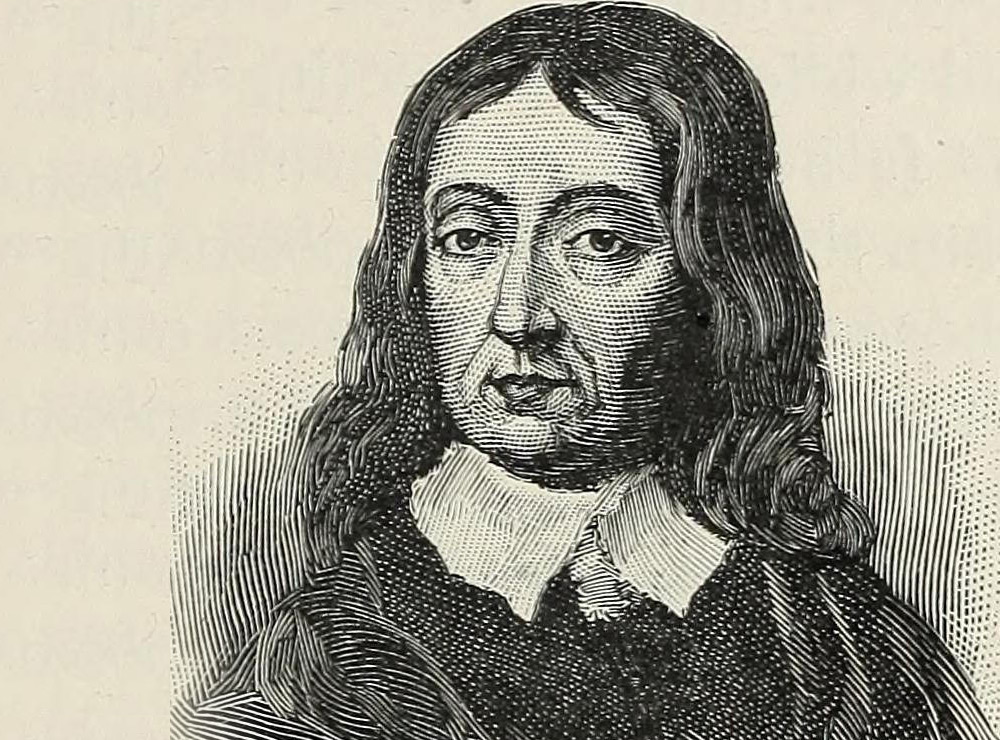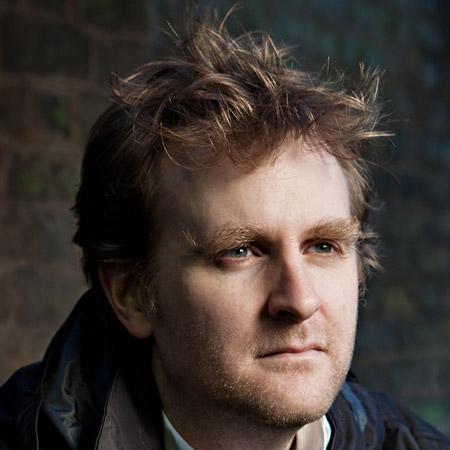This short story was commissioned as part of the ILS' 'Crossing Borders' series.
One of them knocked on my door to invite me out. I think their lists are not good. Mrs Coyle says he was a young man and well-favoured, but not very bright.
“Come out! Come out! The King is here!” the young man said. Mrs Coyle told him I was blind and infirm and could not come out.
“Let him watch from the window, then,” cried the young man in an excess of enthusiasm for his cause.
Mrs Coyle is stern woman that once was married to a serious man. I do not know what her face looks like when she does not approve, but I know it does no one upon whom that expression is fixed any manner of good. This fellow, I take it, heard his own words reflected in her silence, and was abashed at their absurdity. Let the blind man watch from his window if he cannot see from the street! The perfect statement of wit from this brave new nation we have made.
He began mumbling apologies, and she shut the door on him half way through. He will tell his mates later, no doubt, that she was a pretty young girl and gave him the Look, and that when he has leisure he will take her up on the invitation. They will not believe him, but they will be afraid that he speaks true and has done better than they.
In whatever case, he has done better than I. Indeed, he’s right, for all he’s topsy turvy: I do watch from my window, and I see nothing but darkness. I should see the same, had I the use of my eyes. Darkness and foolish laughter and oak leaves to commemorate the brave act of hiding behind a tree: a carpet of oak leaves to welcome back what should be resisted at any cost. Nostalgia is a sickly, subtle tempter that washes blood from memory and leaves overripe fruit. What is the point of words, of sweat and dispute and fire, if they move men not at all? What is the point of words, when the enemy is a crude sentiment that smothers reason? I should have been a composer of the more bombastic marching tunes, or some ribald minstrel, and then this might be my hour. The hour of idiots ascendant.
Last night, between bouts of waking, I dreamed of Mary. She was well for eight years of death. I find I cannot picture her face, and some part of me is horrified by that - but truthfully I no longer understand faces, or sunsets, or night. I remember what it was to see, but I do not remember seeing. Deborah is all that remains of Mary now, eight years old and wise as an owl. She is a good child. She has learned already how to write a clear script - I am told - and she is my hands. She is also my memory of sight. When I cannot recall what a human looks like, I lay my fingers on her brow, and nose, and cheeks, and that is enough. Then I know again what a man is, or a woman, beyond a soul in the dark.
The idiots are crying louder now. There’s so much oak in London you can smell sap on the wind. They must have cut down half the trees in England for this nonsense. Hail to the King: we are too lazy to be a democracy and too frightened to be a republic. Instead we hark to tyrants and call it a famous victory. The future opens its arms to us, the brotherhood of free persons calls, and we - bitter, short-sighted and surly - we turn our faces to the past.
Do you remember how it was? I do. It was a pale country and not rich. For the pleasure of their baseness, these will bring that once again, and this they call a golden age for England. Charles will make England great once more, Charles will make the fields lush, Charles will bring prosperity. Charles will do these things because he is a king and that is what kings do, and never mind that he has no notion how, nor much desire to do them. It is kingship he craves, not government.
So here I sit, and Mrs Coyle, whose husband died with Cromwell, makes bread in the kitchen and Deborah holds my hand in hers and tries - with that small grip - to hold up the falling pillars of my heart’s temple.
A man might mistrust God on such a day, but never doubt that slight pressure, nor its love.
The noise is louder. Charles is coming down the road. You can tell because it’s harder to think. Anyone doing any actual thinking is inside, like me, and wishing it over.
Eight years ago I was not blind yet. I saw the sun go out, for just a few moments. I saw a line of shadow pass in quite leisurely fashion across the whole face of the world. I wondered for those moments if God had seen fit to call an end to things, though it seemed to me He was being unnecessarily obscure about it, if so, in hiding His face even to the last. Ekleipsis: it means abandonment.
Then the day returned. Life carried on as if nothing could be more natural, as it will tomorrow and the next day, except that everything will be dark.
Oh.
Oh.
Oh.
This is the moment of it. Charles will pass under my window. Had I my sight and a heavy stone I might yet do something worth doing with my life, however squalid such an act might be - though, no, of course: they would come for Deborah too. Thus love drives out sin and does not make us cowards.
But if I could get her away - and had my sight - and a heavy stone - and strong arms to throw it -
Oh.
Oh.
Oh.
A new country comes with Charles, with the sound of fools and the smell of oak. My own recedes ahead of it. Liberty and the future retreat before this hungry Rubicon.
And now it passes overhead, and I feel the chill, the heat of nonsense. I feel the wrench as the country I knew, the one I wanted, the one I foresaw and begged for and admired - my country - is torn out of my hands like shreds of old cotton. Like Mary’s fingers slipping from my grasp. My heart stretches after it. Perhaps I will go too, taken along with all I have striven for. Perhaps we are too firmly intertwined and I cannot be left back.
My heart returns to my chest. Where once was England, now there is a space inside me.
Ekleipsis. Rubicon. Restoration.
On the far side, I am in a foreign land. All the houses and the streets have the same names, and all the people too. Everything is the same and yet here I have gone from native to stranger. When they speak of those people, those revolutionaries, those believers, those roundheads to whom this country no longer belongs, they mean me.
Nick Harkaway
Novelist, European, wild-eyed black sky dreamer, husband, dad, oenophile, biathlon fan
SEE PROFILE






